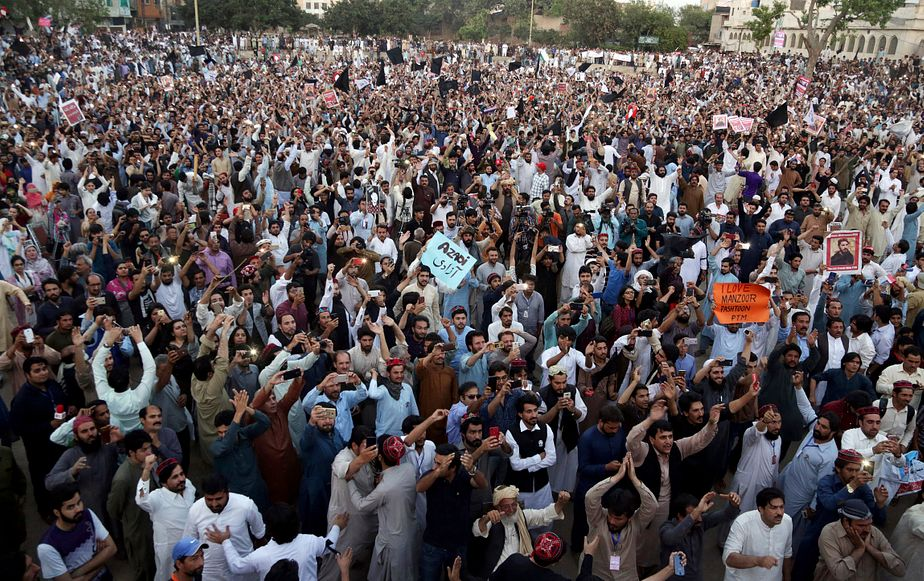PTM’s Disruptive Agenda and Its Impact on National Security

In the battle against terrorism, some forces will always seek to undermine national unity and security by exploiting sensitive identities for their own agendas. The Pashtun Tahafuz Movement (PTM) has unfortunately chosen this path, seeking to manipulate the genuine grievances of Pashtuns to foster division and dissent within Pakistan, even as the nation remains steadfast in its commitment to eliminating terrorism.
The PTM, which claims to be the voice of the Pashtun people, has consistently positioned itself as a defender of the community’s rights. However, its actions tell a different story, one that is increasingly at odds with the aspirations of the very people it claims to represent. By focusing on the grievances of the Pashtun community, PTM has taken a dangerous turn, often stirring unrest in the very regions that are most vulnerable to terrorism. The merged districts of Khyber Pakhtunkhwa, where Pashtuns have lived for generations, have been caught in a volatile struggle between state forces and extremist groups. Yet PTM’s constant focus on criticizing Pakistan’s security forces has exacerbated the situation, rather than contributing to any real solution. In doing so, PTM is driving a wedge between the brave and peace-loving people of these areas and the forces that have sacrificed so much to restore stability and security.
Pakistan’s security forces, particularly those operating in the border regions, are actively engaged in a tough, often dangerous battle against terrorist groups, notably the Khawarij factions like the Tehrik-e-Taliban Pakistan (TTP) and their affiliates. These groups have wreaked havoc on the country, bringing violence, death, and destruction to areas that were once peaceful. Yet, PTM has chosen to place blame on the very forces that work tirelessly to neutralize these terrorist elements. By continuously targeting the security forces and focusing on their alleged misconduct, PTM fails to acknowledge the immense sacrifices made by Pakistan’s military personnel and law enforcement agencies. It deliberately ignores the root causes of the violence—namely the presence of armed insurgents and foreign-backed terrorist groups that use the region as a breeding ground for extremism.
In making such accusations, PTM effectively provides a platform for the very forces that are hindering peace and prosperity in Pakistan. Its narrative, which often veers into anti-state rhetoric, paints a skewed picture of reality. This, in turn, emboldens extremist factions like the TTP, which benefit from the turmoil and division that groups like PTM create. The TTP and their allies thrive on an environment of discord and instability, and they are more than willing to exploit the grievances of innocent communities to further their violent objectives. PTM’s actions seem to inadvertently serve this agenda, as their inflammatory rhetoric distracts from the real issues that the people of the merged districts face.
It is crucial to recognize that while PTM claims to champion Pashtun rights, its actions often betray this cause. The movement’s failure to acknowledge the security forces’ role in combating terrorism is not only misleading but also damaging to the broader goals of national cohesion and peace. Pakistan’s security forces have, time and again, risked their lives to safeguard the country from terrorist elements that threaten the very fabric of the nation. To reduce their efforts to a mere political talking point is to dishonor their sacrifices and jeopardize the progress made in areas previously held captive by extremists.
Furthermore, PTM’s attempt to frame the Pakistani state as the enemy of the Pashtun people serves only to deepen the divide between the state and the people it seeks to protect. The narrative that the government and security forces are oppressors of the Pashtun community is not only baseless but also dangerously divisive. It ignores the complex realities of counterterrorism operations, where the lines between civilian and combatant are often blurred, and where innocent lives are caught in the crossfire of a long-standing battle with forces that do not care for ethnic, religious, or national identity.
In the end, the future of the Pashtun community, especially those in the merged districts, depends not on the divisive rhetoric of groups like PTM but on unity and cooperation with the Pakistani state. It is essential that the PTM and others like it acknowledge the pivotal role played by Pakistan’s security forces in stabilizing the region and eradicating terrorism. The people of Khyber Pakhtunkhwa and the rest of the country deserve a narrative based on truth, unity, and the collective will to overcome the threat of terrorism. As Pakistan continues to face challenges from both external and internal forces, there can be no room for attempts to undermine the country’s commitment to securing peace, both for the Pashtun people and for all citizens of Pakistan. The fight against terrorism is a fight for the future, and it cannot be won by sowing division or distorting the truth.











